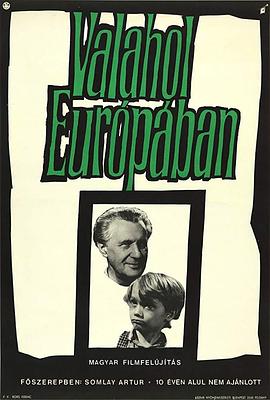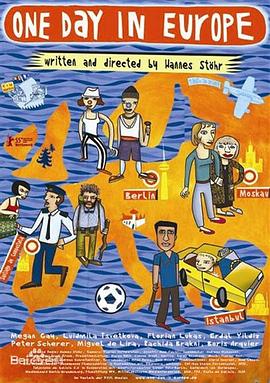Somewhere in the remote region, the war ends. In the midst of ruined cities and houses in the streets, in rural hamlets, everywhere where people still live, are children who have lost their homes and parents. Abandoned, hungry, and in rags, defenseless and humiliated, they wander through the world. Hunger drives them. Little streams of orphans merge into a river which rushes forward and submerges everything in its path. The children do not know any feeling; they know only the world of their enemies. They fight, steal, struggle for a mouthful of food, and violence is merely a means to get it. A gang led by Cahoun finds a refuge in an abandoned castle and encounters an old composer who has voluntarily retired into solitude from a world of hatred, treason, and crime. How can they find a common ground, how can they become mutual friends The castle becomes their hiding place but possibly it will also be their first home which they may organize and must defend. But even for this, the price will be very high. To this simple story, the journalist, writer, poet, scriptwriter, movie director, and film theoretician Béla Balázs applied many years of experience. He and the director Géza Radványi created a work which opened a new postwar chapter in Hungarian film. Surprisingly, this film has not lost any of its impact over the years, especially on a profound philosophical level. That is to say, it is not merely a movie about war; it is not important in what location and in what period of time it takes place. It is a story outside of time about the joyless fate of children who pay dearly for the cruel war games of adults. At the time it was premiered, the movie was enthusiastically received by the critics. The main roles were taken by streetwise boys of a children's group who created their roles improvisationally in close contact with a few professional actors, and in the children's acting their own fresh experience of war's turmoil appears to be reflected. At the same time, their performance fits admirably into the mosaic of a very complex movie language. Balázs's influence revealed itself, above all, in the introductory sequences an air raid on an amusement park, seen in a montage of dramatic situations evoking the last spasms of war, where, undoubtedly, we discern the influence of classical Soviet cinematography. Shooting, the boy's escape, the locomotive's wheels, the shadows of soldiers with submachine guns, the sound of a whistle—the images are linked together in abrupt sequences in which varying shots and expressive sharp sounds are emphasized. A perfectly planned screenplay avoided all elements of sentimentality, time-worn stereotypes of wronged children, romanticism and cheap simplification. The authors succeeded in bridging the perilous dramatic abyss of the metamorphosis of a children's community. Their telling of the story (the scene of pillaging, the assault on the castle, etc) independently introduced some neorealist elements which, at that time, were being propagated in Italy by De Sica, Rossellini, and other film artists. The rebukes of contemporary critics, who called attention to formalism for its own sake have been forgotten. The masterly art of cameraman Barnabás Hegyi gives vitality to the poetic images. His angle shots of the children, his composition of scenes in the castle interior, are a living document of the times, and underline the atmosphere and the characters of the protagonists. The success of the picture was also enhanced by the musical art of composer Dénes Buday who, in tense situations, inserted the theme of the Marseilaise into the movie's structure, as a motive of community unification, as an expression of friendship and the possibility of understanding. Valahol Europaban is the first significant postwar Hungarian film. It originated in a relaxed atmosphere, replete with joy and euphoria, and it includes these elements in order to demonstrate the strength of humanism, tolerance, and friendship. It represents a general condemnation of war anywhere in the world, in any form.
关联推荐
猜你喜欢
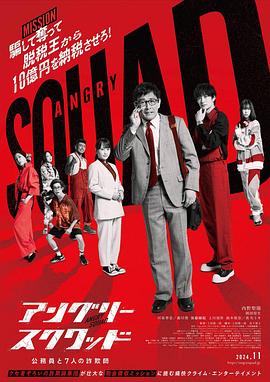 7.0HD内野圣阳 冈田将生 川荣李奈 森川葵 后藤刚范 上川周作 铃木圣奈 真矢美纪 小泽征悦 皆川猿时 神野三铃 吹越满 以徐仁国、秀英、马东锡出演的韩国电视剧《前男友是天才欺诈师~ 38师机动队~》为原作的本作品是认真的公务员和天才欺诈师交织的犯罪娱乐。在税务所工作的熊泽二郎被骗子冰室真琴骗了一大笔钱,故事由此展开。在
7.0HD内野圣阳 冈田将生 川荣李奈 森川葵 后藤刚范 上川周作 铃木圣奈 真矢美纪 小泽征悦 皆川猿时 神野三铃 吹越满 以徐仁国、秀英、马东锡出演的韩国电视剧《前男友是天才欺诈师~ 38师机动队~》为原作的本作品是认真的公务员和天才欺诈师交织的犯罪娱乐。在税务所工作的熊泽二郎被骗子冰室真琴骗了一大笔钱,故事由此展开。在  2.0内详曾毅 周奇 孙艺洲 柳岩 王玉雯 王迅 张智超 许吴彬 赵海燕 范明 吴军 蒋诗萌 张磊 李栋 雷淞然 董宝石 庞博 符龙飞 张一鸣 肖央 王太利 孟鹤堂 曹鹤阳 印小天 张晓谦 黄曦彦 手持定制剧本,就能走上顶流之路?模范司机赵天涯(曾毅 饰)与一心想要爆火的Rapper于虹(周奇 饰)阴差阳错成为“师徒搭档”。于虹误以为赵天涯是MCN老板乌力吉(孙艺洲 饰)安排的真人秀NPC,误打
2.0内详曾毅 周奇 孙艺洲 柳岩 王玉雯 王迅 张智超 许吴彬 赵海燕 范明 吴军 蒋诗萌 张磊 李栋 雷淞然 董宝石 庞博 符龙飞 张一鸣 肖央 王太利 孟鹤堂 曹鹤阳 印小天 张晓谦 黄曦彦 手持定制剧本,就能走上顶流之路?模范司机赵天涯(曾毅 饰)与一心想要爆火的Rapper于虹(周奇 饰)阴差阳错成为“师徒搭档”。于虹误以为赵天涯是MCN老板乌力吉(孙艺洲 饰)安排的真人秀NPC,误打 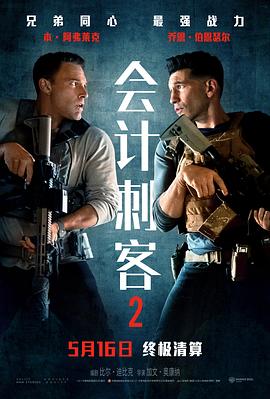 8.0正片本·阿弗莱克 乔·博恩瑟 辛希亚·阿戴-罗宾森 丹妮艾拉·皮内达 J·K·西蒙斯 Allison Robertson 格兰特·哈维 玛丽埃尔·苏亚雷斯 Matt Linton 卡珊卓·布莱尔 Nik Sanchez 约翰·帕特里克·乔丹 宝拉·罗兹 克里斯汀·阿瑞扎 Celeste Octavia 钱佛南 Lincoln Bodin 阿兰·阿里·瓦什涅夫斯基 迈克尔·图尔克 塔丽雅·蒂斯菲尔德 乔·霍尔特 当一位老友遭到谋杀,只留下一条神秘讯息:“找到那个会计师”,克里斯蒂安·沃尔夫(本·阿弗莱克饰)不得已开始追查此案,并招来了战力惊人的弟弟布莱斯顿(乔恩·伯恩瑟尔饰)助阵。他们与金融犯罪执法局副局长玛
8.0正片本·阿弗莱克 乔·博恩瑟 辛希亚·阿戴-罗宾森 丹妮艾拉·皮内达 J·K·西蒙斯 Allison Robertson 格兰特·哈维 玛丽埃尔·苏亚雷斯 Matt Linton 卡珊卓·布莱尔 Nik Sanchez 约翰·帕特里克·乔丹 宝拉·罗兹 克里斯汀·阿瑞扎 Celeste Octavia 钱佛南 Lincoln Bodin 阿兰·阿里·瓦什涅夫斯基 迈克尔·图尔克 塔丽雅·蒂斯菲尔德 乔·霍尔特 当一位老友遭到谋杀,只留下一条神秘讯息:“找到那个会计师”,克里斯蒂安·沃尔夫(本·阿弗莱克饰)不得已开始追查此案,并招来了战力惊人的弟弟布莱斯顿(乔恩·伯恩瑟尔饰)助阵。他们与金融犯罪执法局副局长玛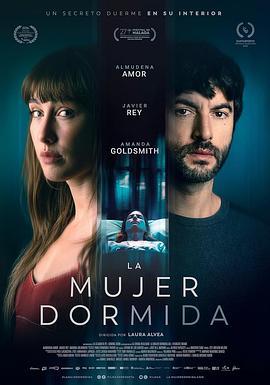 2.0正片哈维尔·雷伊 阿尔穆德纳·阿莫尔 Amanda Goldsmith A young nurse called Ana arrives at a small village where she is supposed to take care of a woman in
2.0正片哈维尔·雷伊 阿尔穆德纳·阿莫尔 Amanda Goldsmith A young nurse called Ana arrives at a small village where she is supposed to take care of a woman in  7.0更新至10集未知 #腾讯视频动漫大赏2023# #动漫大赏2023# #失业魔王动画# 当被弹劾失业的魔王,遇见被魔王打败的勇者。啊这,不一起快乐的玩耍好像有点不礼貌了呢!《失业魔王》动画预告欢乐上线,一起踏上寻找强者
7.0更新至10集未知 #腾讯视频动漫大赏2023# #动漫大赏2023# #失业魔王动画# 当被弹劾失业的魔王,遇见被魔王打败的勇者。啊这,不一起快乐的玩耍好像有点不礼貌了呢!《失业魔王》动画预告欢乐上线,一起踏上寻找强者  5.0更新至04集未知 神秘少年大风解救了遭遇暗算重病的李画眉,大风欲赴京都寻师姐巧与李画眉同路,途中李画眉却惊觉其师姐便是女皇秦昭,且女皇屡派杀手追杀。为查明缘由,大风和李画眉性命互托,共同御敌。江湖纷争四起,朝堂争斗更胜
5.0更新至04集未知 神秘少年大风解救了遭遇暗算重病的李画眉,大风欲赴京都寻师姐巧与李画眉同路,途中李画眉却惊觉其师姐便是女皇秦昭,且女皇屡派杀手追杀。为查明缘由,大风和李画眉性命互托,共同御敌。江湖纷争四起,朝堂争斗更胜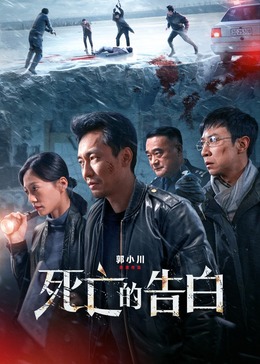 8.0更新至20240922期章亭 邀请一对(或多个)有矛盾的当事人进入演播室,主持人和人民调解员现场为当事人排忧解难,通过节目告诉观众面对纠纷的智慧和解决矛盾的艺术,将真实事件和综艺手段完美交融,塑造全新节目模式。节目中将大力体现人文
8.0更新至20240922期章亭 邀请一对(或多个)有矛盾的当事人进入演播室,主持人和人民调解员现场为当事人排忧解难,通过节目告诉观众面对纠纷的智慧和解决矛盾的艺术,将真实事件和综艺手段完美交融,塑造全新节目模式。节目中将大力体现人文 3.0更新至20240923期刘佳 小河 张嘉益 第三调解室,说法,说理,说亲情。第三调解室是国内第一档具有法律效力的排解矛盾、化解纠纷的电视节目。 节目将司法局的人民调解室,公安局的联合调解室,人民法院的庭前调解室搬进演播室。对百姓生活中遇到
3.0更新至20240923期刘佳 小河 张嘉益 第三调解室,说法,说理,说亲情。第三调解室是国内第一档具有法律效力的排解矛盾、化解纠纷的电视节目。 节目将司法局的人民调解室,公安局的联合调解室,人民法院的庭前调解室搬进演播室。对百姓生活中遇到 4.0更新至20241003期赵川 《爱情保卫战》是天津卫视推出的情感心理节目,节目现场邀请资深情感专家用专业知识给到场的每对情侣提供客观理性的分析及双方契合程度的科学考量,并根据每对情侣的不同情况给予恋爱指导和情感忠告。同时也邀请明星
4.0更新至20241003期赵川 《爱情保卫战》是天津卫视推出的情感心理节目,节目现场邀请资深情感专家用专业知识给到场的每对情侣提供客观理性的分析及双方契合程度的科学考量,并根据每对情侣的不同情况给予恋爱指导和情感忠告。同时也邀请明星